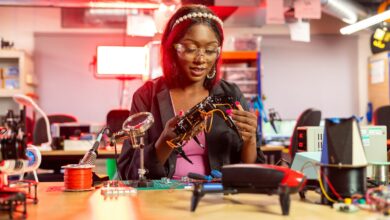Unlocking the Benefits of Autonomy in Relationships
Understanding the Benefits of Autonomy in Relationships
Autonomy in relationships is an important factor in the overall health and well-being of any relationship. Autonomy is the ability to make decisions independently, without the influence of another person. It is a key component of any healthy relationship and can provide a sense of security and freedom in the relationship.
Autonomy in relationships allows each partner to make decisions for themselves, without the influence of the other person. This can help each partner to feel respected and valued in the relationship. It can also help to reduce the amount of conflict in the relationship, as each partner is free to make their own decisions without feeling pressured by the other person.
Autonomy in relationships also allows each partner to have their own space and time. This can help to create a sense of balance in the relationship, as each partner can have their own interests and activities that they pursue without feeling the need to be constantly together. This can help to reduce feelings of resentment and allow each partner to have a sense of independence within the relationship.
Autonomy in relationships can also help to create a sense of trust and understanding between the two partners. When each partner is allowed to make their own decisions, it can help to create a sense of trust and understanding between the two. This can help to strengthen the bond between the two partners and create a stronger, more secure relationship.
Overall, autonomy in relationships is an important factor in the overall health and well-being of any relationship. It can help to create a sense of security and freedom in the relationship, as well as a sense of trust and understanding between the two partners. Autonomy in relationships can help to create a strong, secure relationship that is built on mutual respect and understanding.
Exploring the Impact of Autonomy on Communication
Autonomy has become an increasingly important factor in communication in recent years. Autonomy, which is defined as the ability to make decisions independently, has been found to have a significant impact on the way people communicate with each other.
Autonomy has been found to increase the quality of communication. People who are autonomous are more likely to be open and honest in their communication, as they are not afraid of the consequences of their words. This leads to a more meaningful exchange of ideas and information, as well as a greater understanding of each other’s perspectives. Autonomy also encourages people to take initiative in their communication, which can lead to more creative and innovative solutions to problems.
Autonomy has also been found to increase the quantity of communication. People who are autonomous are more likely to take the initiative to start conversations, ask questions, and engage in dialogue. This leads to more meaningful conversations and a greater exchange of ideas.
Autonomy has also been found to increase the speed of communication. People who are autonomous are more likely to take the initiative to make decisions quickly, which can lead to faster resolution of problems and quicker implementation of solutions. This can be beneficial in situations where time is of the essence, such as in business or emergency situations.
Finally, autonomy has been found to increase the efficiency of communication. People who are autonomous are more likely to take the initiative to prioritize tasks and focus on the most important issues. This can lead to more efficient use of resources and time, as well as a greater level of productivity.
Overall, autonomy has been found to have a significant impact on the way people communicate with each other. Autonomy encourages people to be open and honest in their communication, to take initiative in their communication, to engage in more meaningful conversations, to make decisions quickly, and to prioritize tasks more efficiently. As such, autonomy can be a powerful tool for improving communication in any situation.
Establishing Boundaries to Maintain Autonomy in Relationships
Establishing boundaries to maintain autonomy in relationships is an important part of having healthy relationships. Autonomy is the ability to make decisions and take action without being influenced by external forces. It is important to maintain autonomy in relationships in order to ensure that each person’s needs are respected and met.
When establishing boundaries in relationships, it is important to be clear and direct about what you need and what you are comfortable with. This includes setting boundaries around physical and emotional intimacy, communication, and expectations. It is also important to be aware of your own needs and feelings, as well as those of your partner.
When it comes to physical and emotional intimacy, it is important to be clear about what you are comfortable with and what you are not. This includes setting boundaries around physical touch, sexual activity, and emotional expression. It is also important to be aware of your partner’s needs and feelings and to respect them.
When it comes to communication, it is important to be honest and direct about what you need and what you are comfortable with. This includes setting boundaries around how often you communicate, the topics you discuss, and how you communicate. It is also important to be aware of your partner’s needs and feelings and to respect them.
Finally, when it comes to expectations, it is important to be clear about what you expect from the relationship and what you are comfortable with. This includes setting boundaries around commitment, expectations of each other, and expectations of the relationship. It is also important to be aware of your partner’s needs and feelings and to respect them.
Establishing boundaries to maintain autonomy in relationships is an important part of having healthy relationships. It is important to be clear and direct about what you need and what you are comfortable with, and to be aware of your partner’s needs and feelings and to respect them. Doing so will help ensure that each person’s needs are respected and met, and that autonomy is maintained in the relationship.
Developing Healthy Coping Strategies to Support Autonomy
Developing healthy coping strategies is an important part of supporting autonomy. Autonomy is the ability to make decisions and take action independently, and it is a key component of self-determination and self-efficacy. A person’s ability to cope with life’s challenges is essential to their autonomy. It is important to develop healthy coping strategies that can help individuals to manage stress, cope with difficult emotions, and make decisions that are in their best interest.
Healthy coping strategies can include both proactive and reactive approaches. Proactive strategies involve taking steps to prevent or reduce stress before it occurs, such as setting realistic goals, developing healthy habits, and engaging in regular self-care activities. Reactive strategies involve responding to stress in a healthy way, such as using relaxation techniques, talking to a trusted friend or family member, or engaging in activities that promote emotional regulation.
It is important to develop a variety of coping strategies that can be used in different situations. For example, a person may need to use different strategies to cope with a stressful work situation than they would use to cope with a difficult relationship. Developing a range of strategies can help individuals to be better prepared to handle different types of stress.
It is also important to create a supportive environment that encourages autonomy. This can include providing resources and support to help individuals make informed decisions, as well as providing opportunities for individuals to practice their decision-making skills. Developing healthy coping strategies can help individuals to feel more confident in their ability to make decisions and take action independently.
Finally, it is important to remember that everyone copes with stress differently. It is important to be mindful of individual differences and to provide support that is tailored to the needs of each individual. Acknowledging and validating individual differences can help to create a safe and supportive environment that encourages autonomy.
Developing healthy coping strategies can be a challenging but rewarding process. By taking steps to create a supportive environment and providing resources to help individuals make informed decisions, individuals can become more confident in their ability to make decisions and take action independently. This can help to foster autonomy and self-determination, which are important components of a healthy and fulfilling life.
Learning to Respect and Celebrate Autonomy in Relationships
Learning to respect and celebrate autonomy in relationships is an important part of creating and maintaining a healthy and fulfilling relationship. Autonomy is the ability to make decisions and act independently. It is important to recognize that both partners in a relationship have autonomy and that each partner should be respected and celebrated for their autonomy.
When two people come together in a relationship, it is important to remember that each person has their own opinions, values, and beliefs. It is important to respect each other’s autonomy and not try to control or manipulate the other person. Each person should be allowed to make their own decisions and act independently. This will help to create a healthy and balanced relationship.
It is also important to celebrate each other’s autonomy. This means recognizing and appreciating the decisions and actions that each partner makes. This can be done by offering words of encouragement and support when one partner makes a decision or takes action. It is also important to recognize and celebrate the accomplishments of each partner. This will help to create a positive and supportive relationship.
Learning to respect and celebrate autonomy in relationships is an important part of creating and maintaining a healthy and fulfilling relationship. It is important to remember that each person has their own opinions, values, and beliefs and that each partner should be respected and celebrated for their autonomy. It is also important to recognize and celebrate the decisions and actions that each partner makes and the accomplishments of each partner. This will help to create a positive and supportive relationship.
Excerpt
Autonomy is a key factor in healthy relationships. It allows for individuals to maintain their own sense of identity and independence, while also being able to communicate and collaborate with their partner. Autonomy can lead to increased trust, respect, and communication in relationships, ultimately leading to greater satisfaction and a deeper connection.



